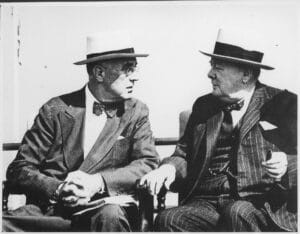When thinking about cherished Christmas tales, O. Henry’s “The Gift of the Magi” invariably comes to mind. This poignant short story, “The Gift of the Magi,” beautifully encapsulates the spirit of Christmas, reminding us that the most valuable gifts are not always material possessions. Like many, my early encounters with Christmas were filled with the magic of O. Henry’s narrative, setting a stage for understanding the deeper meaning of holiday gifting.
My own childhood Christmases are painted with vivid memories, not of the presents themselves, but of the people who made the season special. Family gatherings at my grandparents’ home resonate more profoundly than any toy unwrapped on Christmas morning. The aroma of Grandma’s kitchen, the sound of Grandpa’s laughter – these are the gifts that time has burnished, far outweighing the fleeting joy of a new toy. Who would exchange the echo of loved ones’ voices for any material item?
It’s this sentiment – the immeasurable value of human connection – that truly echoes the wisdom found in O. Henry’s classic Christmas story. This idea, that our presence is the most meaningful present we can offer, is reinforced by perspectives from both history and tradition.
 President Franklin D. Roosevelt and Prime Minister Winston Churchill meeting in Quebec during Christmas 1941. This pivotal wartime Christmas visit highlighted the invaluable gift of presence and strategic partnership, reminiscent of the spirit of O. Henry's Christmas gift story.
President Franklin D. Roosevelt and Prime Minister Winston Churchill meeting in Quebec during Christmas 1941. This pivotal wartime Christmas visit highlighted the invaluable gift of presence and strategic partnership, reminiscent of the spirit of O. Henry's Christmas gift story.
Consider December 1941, a dark period in world history. In the immediate aftermath of Pearl Harbor, as President Franklin Roosevelt navigated the nation towards war, an unexpected guest arrived at the White House for Christmas: Prime Minister Winston Churchill. Eleanor Roosevelt might have initially been taken aback by Churchill’s extended three-week stay, but the President understood the gravity of Churchill’s visit. Churchill brought with him not material gifts, but something far more crucial – his presence, his unwavering resolve, and the hard-earned wisdom gleaned from years of wartime leadership. No opulent gift could have matched the strategic insight and indomitable spirit Churchill offered. This meeting cemented a vital alliance, a testament to the power of presence in shaping history, a narrative mirroring the selfless sacrifice in O. Henry’s “The Gift of the Magi,” where intangible devotion triumphs over material possessions.
Drawing a parallel from a different realm, Jewish tradition emphasizes the significance of presence within community. In Judaism, a minyan, a quorum of ten Jewish adults (traditionally men in Orthodox Judaism), is required for communal prayer. As a rabbi once wisely shared with his young student, “I don’t want your presents, I want your presence.” This simple yet profound statement underscores that the act of showing up, of being present for one another, holds immense value in spiritual and communal life. It’s a sentiment that resonates deeply with the core message of O. Henry’s Christmas gift story.
In a world often preoccupied with material exchange, O. Henry’s “The Gift of the Magi” and these real-life examples serve as poignant reminders. While giving gifts is a cherished Christmas tradition, the true essence of the season lies in the gifts of ourselves – our time, our attention, our presence. These are the treasures that truly enrich our lives and the lives of those we cherish, embodying the timeless wisdom found within O. Henry’s beloved Christmas tale.
Wishing a Merry Christmas to all who celebrate, with a reminder to cherish the presence of loved ones above all else.
